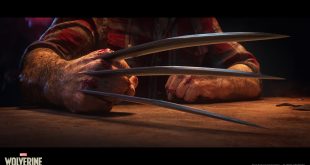A recent report from a well-known Nvidia leaker suggests the upcoming GB202 GPU (Blackwell), which will presumably be used on the RTX 50 series flagship card, could be significantly faster than the AD102 GPU.
According to kopite7kimi, the GB100 GPU (data centre use) will feature 8 GPC (graphics processing clusters), each with 10 TPCs (texture processing clusters). Seeing as each TPC has 2 SMs (streaming multiprocessors), GB100 would have 160 SMs. This setup implies an increase in overall core count over GH100 (144).
As I mentioned before, GA100 is 8*8, and GH100 is 8*9. GB100 will have a basic structure like 8*10. GB202 looks like 12*8.
— kopite7kimi (@kopite7kimi) September 28, 2023
Moreover, the leaker also claimed that the GB202 GPU (presumably for gaming and workstation cards) would pack 12 GPCs with 8 TPCs each. Assuming that, like in previous Nvidia GPU architectures, each TPC has 2 SMs, we have 192 SMs, which matches what has been previously reported. Unless something changes, this 192 SM configuration amounts to 24,576 CUDA cores, a significant boost over the AD102 GPU currently used on the RTX 4090 and RTX 6000 ADA. However, Nvidia has yet to fully use the 144 SM count, with the closest offering being the flagship workstation graphics card with 142 SMs enabled. Unfortunately, information on the Tensor and RT Cores configurations is currently unknown.
Additionally, kopite7kimi also corroborated the previous rumours about the GB202 GPU, which supposedly has a 512-bit memory bus. Still, note that this arrangement may not be used in the RTX 5090. As for the type of memory, rumours are all over the place, with some saying it will use GDDR7, while others claim it will use GDDR6X/W.
Discuss on our Facebook page, HERE.
KitGuru says: Although these rumoured specifications don't show the whole picture, if accurate, we're seeing yet another massive leap in GPU performance.
 KitGuru KitGuru.net – Tech News | Hardware News | Hardware Reviews | IOS | Mobile | Gaming | Graphics Cards
KitGuru KitGuru.net – Tech News | Hardware News | Hardware Reviews | IOS | Mobile | Gaming | Graphics Cards


